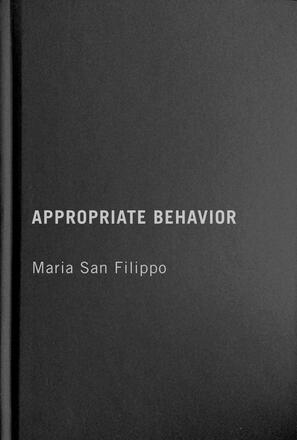
Appropriate Behavior
An ode to the acclaimed debut feature by an irreverent iconoclast of queer independent media.
Description
Premiering at Sundance in 2014, Desiree Akhavan’s acclaimed debut feature, Appropriate Behavior, introduced the indie film world to the deadpan, irreverent wit that had already won over fans of her trailblazing LGBTQ web series The Slope.
The first volume in the Queer Film Classics series to spotlight a work by and about a bisexual woman of colour, this book explores Appropriate Behavior as an instant classic of US indie filmmaking in the 2010s, as a radical reappropriation of straight and gay film genres, as an artist’s coming-of-age story, and as a model for feminist-queer creative collaboration. Less than a decade old, Appropriate Behavior captures an urban queer community imperilled by gentrification and homonormativity and serves as exemplar of an innovative wave of independent cinema not yet subsumed by the streaming economy. Maria San Filippo explores how filmmaker and film render a singular voice and story that queers not only its celebrated romcom predecessors but also the gay coming-out film and the lesbian romance alike. The book concludes with an interview with Akhavan.
San Filippo pays special tribute to Akhavan’s audacious sensibility and the “inbetweener” moxie that makes Appropriate Behavior an unparalleled portrayal of bisexuality.
Reviews
“This significant book offers an expansive discussion of a film that is widely enjoyed but not yet fully recognized for the ways it plays with, unsettles, and writes itself into the US independent and queer cinema canons. Often a rollicking good read, it speaks both to readers already knowledgeable about queer screen culture and recent shifts in the indie sector and to the average film lover.” Jodi Brooks, University of New South Wales, Sydney